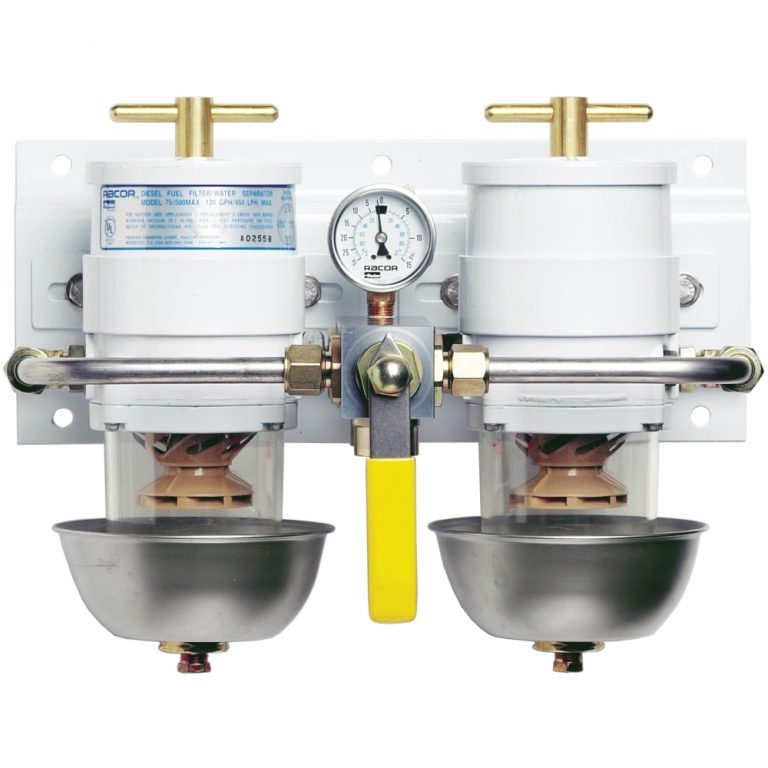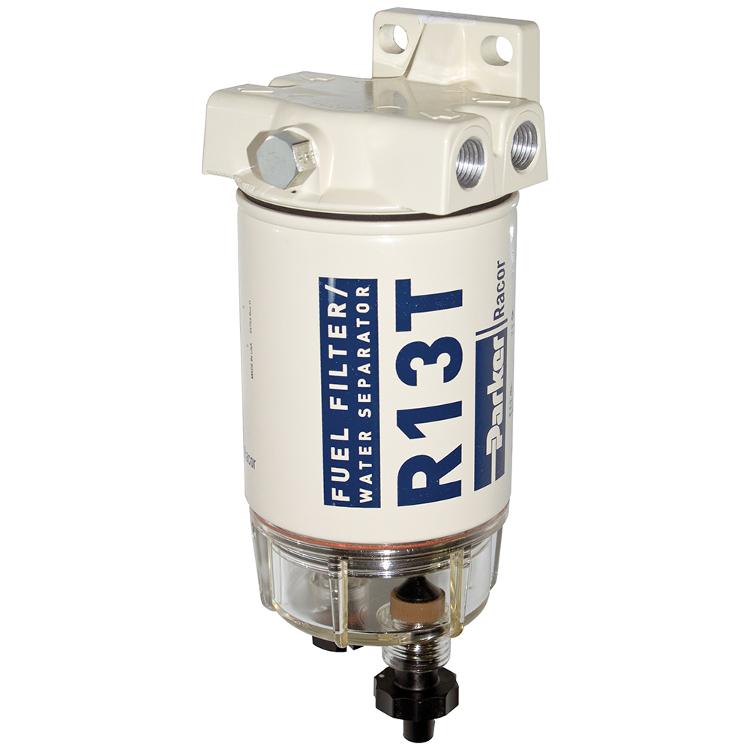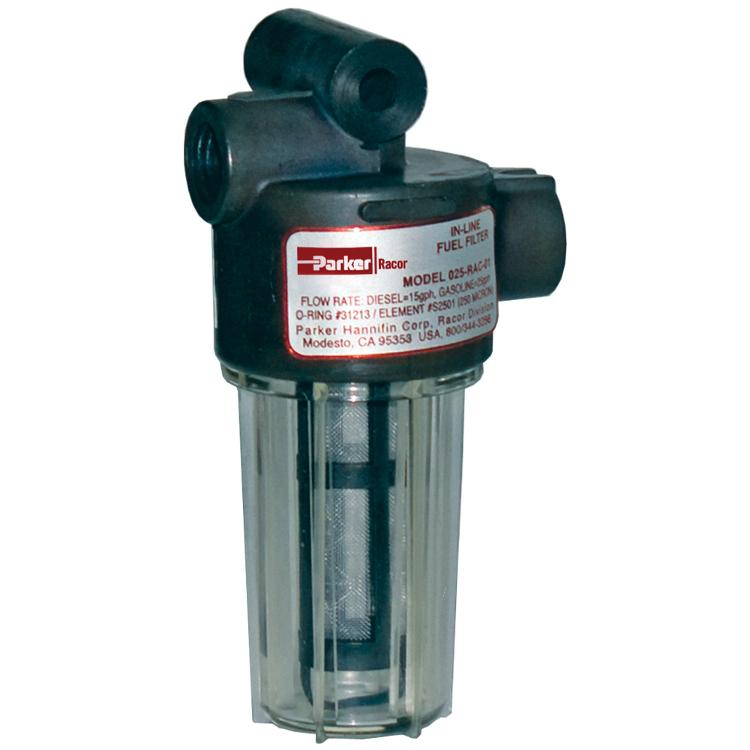The Proper Care & Feeding of your Marine Fuel System

One of the primary needs of your vessel’s internal combustion engine(s) is clean fuel. On many boats, an effective fuel filtration system is often overlooked when the boat is manufactured. With today’s fuel injected gasoline powered boats, fuel quality must be almost pristine to avoid problems with these engines. Contaminated fuel can cause the myriad of electronic sensors on these engines to give all mannerisms of improper signals to the engine’s computers and also give improper diagnostic codes to the mechanic attempting to troubleshoot them. Diesel-powered boats usually have a fuel filter on board, but even those can be upgraded to ensure that contaminant free fuel is getting to the engine.
The most common problems usually begin with the introduction of water into the fuel. Water is commonly found in fuel systems and can come from a variety of sources. Condensation, fuel handling and environmental conditions are the main causes of contamination. Humid marine environments will increase the presence of water. Water contaminated fuel can lead to very severe engine damage if it is not detected and treated.
Contaminated fuel contributes to damage caused by oxidation (rusted metal parts) and suspended particles of iron oxide, microbiological growth and sulfuric acid damage, normally seen in diesel fuel. Fuel provides lubrication to the fuel injection system. Water displaces the fuel’s lubricating qualities increasing the chances of premature wear and galling.
Most factory installed filters such as those found in carburetors, fuel pump canisters and engine mounted filters do not have the capability of removing water. For this reason, the addition of a quality fuel filter/water separation unit is absolutely necessary to prevent the causes of engine damage. On most small gasoline powered boats, this can easily be accomplished with the addition of an accessory spin-on style fuel filter/water separation unit. These inexpensive units are commonly available at most marine supply stores and boat dealership parts counters. Be sure to size the system for your engine’s horsepower and fuel flow needs. These filter assemblies are usually very easy to install near the fuel tank in your boat. Always include a couple of replacement filters to add to your boat’s spare parts locker. If you encounter a bad case of water contamination while underway, which is caused by the fuel sloshing around in the tank mixing with the water, you will have the ability to drive the boat home rather than row it if you carry extra filters. This is because the water in the fuel will not pass through the filter and will plug the filter media decreasing the flow of fuel. You will notice this as a marked reduction in engine rpm’s which usually gets worse. Remove the contaminated spin-on filter, put it in a bucket for proper disposal later, and install a fresh filter. When you get back to shore, check into the problem as soon as possible to avoid further damage. When installing a fuel filter/water separator on your boat, be sure to follow United States Coast Guard guidelines for materials used and mounting locations.
An important thing to always remember is DO NOT use automotive fuel system additives or fuel dryers. This is because most of these products contain alcohol which ATTRACTS water into the system, compounding your problems. Always use marine fuel additives.
Diesel fuel systems, though more complex, will benefit greatly with the addition of a properly selected fuel filter/water separation system. Any vessel making long distance or offshore passages will be best served using a duplex system. This system uses two or more filters with a manifold and valve that allows the engine to continue operating on one filter while the other filter is being serviced. Most of these units utilize a vacuum gauge to determine filter efficiency and forewarn you of impending blockage. Vessels not going offshore will be improved with the addition of a properly sized single fuel filter/water separator assembly, but a dual system, though more expensive, provides an excellent margin of safety and reliability.

Most diesel fuel filter/water separator assemblies are sold with 2 micron filters however, the secret to the most effective and efficient fuel filtration is STEP-DOWN filtration. RACOR Filters states in their catalog, “A 30 micron filter (or primary filter) is used to filter raw fuel (or poor quality fuel) before it can be further filtered by finer medias such as a 10 or 2 micron. A 10 micron filter (or secondary and even final) is used to filter fuel which is known to be of very good quality. A 2 micron filter (or final filter) is the finest filtration available and is the last filter used prior to engine ingestion.” In other words, the first filter in line from the fuel tank (primary) should have a larger micron rating than the filter (secondary) located further on down the line or on the engine. The secondary filters are commonly 10 micron rated. If you use a 2 micron primary filter, a larger micron rated secondary filter will be doing absolutely nothing while reducing the overall efficiency of your system. The primary filter should be either a 10 micron or 30 micron rated filter. Keep in mind that using the small micron rated filters will also require more frequent filter changes. Exceptionally high fuel-flow engines, such as Detroit Diesels, should use the largest micron rating as the smaller sizes will restrict fuel flow and will need to be changed more often than necessary. Remember, it is fuel flow, not fuel consumption that determines the correct size of the fuel filter/water separator unit you use. Many engines use a fuel bypass system that routes unused fuel back to the fuel tank after it passes through the filtering system. Additionally, many small diesels are equipped with equally small fuel lift pumps. Using a small micron rated filter increases the load on these small pumps which can lead to premature failure. A properly sized primary filter used in conjunction with the engine mounted secondary filter will provide all the filtration needed to guarantee good fuel quality.
Fuel filter/water separator assemblies are available in both spin-on and drop-in element styles. Gasoline spin-on replacement filters are available almost everywhere. For diesel applications, the drop-in replacement element is considerably less expensive and much easier to find than the spin-on styles if you cruise to remote areas. A good rule of thumb, especially if you have difficulty servicing engine mounted secondary filters, is to change the primary filter twice to every secondary filter change.
It is surprising, but you can routinely find rust, sand and other small particles in your fuel. Sometimes even larger items can be present. Oxidized organic semi-solid contaminants such as carbon, gums and varnishes are the most common causes of plugged fuel filter elements. Efficient fuel filtration devices must be capable of retaining solid particle contaminants while also providing sufficient capacities for the natural organic contaminants found in diesel fuel.
In areas known to have contaminated fuel problems, pre-filters are commonly used. While these aren’t really filters as we normally think of them, they are very effective at removing contaminants and extending filter life. These pre-filters are cleverly designed to trap contaminants and be drained as necessary at regular intervals. Commercial fishing and charter vessels have successfully used these for some time and now, many pleasure boaters are installing them.

Whether you have a gasoline or diesel-powered vessel, the proper care and feeding of your boat and its total fuel system will provide you with many happy and trouble-free hours of boating pleasure.
Get out and enjoy your boat. If you need any parts, please visit us at Go2marine.com, or call us toll free at 1-800-998-9508, 7 a.m. – 4 p.m. P.S.T. Monday – Friday. Happy Boating!
Michael Weller
Engine, Propulsion and Steering Systems Specialist